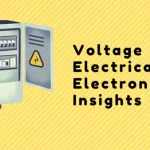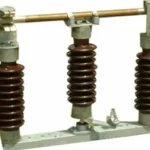The History of Electricity: Key Pioneers and Discoveries
History of Electricity reveals that its discovery wasn't the work of a single individual. While the concept of electricity has been known for thousands...
AC Circuit Fundamental: Cycle, Amplitude, Frequency, Phase & More
In the world of electrical engineering, AC circuits play a crucial role in the transmission and distribution of electric power. Understanding the basic concepts...
Electrical Isolator: Function, Types, and Importance
An Electrical Isolator, also known as a disconnector, is a manual mechanical switch used to disconnect electrical equipment from the power system. Unlike circuit...
Primary Sources of Electrical Energy and Their Applications
Primary sources of electrical energy are the backbone of modern civilization, powering industries, homes, and essential services. These sources, ranging from conventional methods such...
Types of Fuse and Their Characteristics
Types of fuses are essential components in electrical systems, designed to protect circuits and connected loads from damage while ensuring safety. Fuse play a...
Solar Cells & Power Systems: How Solar Energy Powers Our World
The sun provides us with both light and heat, essential for life on Earth. Beyond these basic benefits, solar energy can also be harnessed...
Electrical Transformer Testing Methods and Standards
Electrical Transformer testing is a crucial aspect of ensuring the reliability, efficiency, and safety of power systems. These tests validate the operational integrity of...
Wattmeter Definition, Construction, Working Principle & Application
Wattmeter is essential instruments used to measure the real power consumed by electrical devices. Before diving into the details of wattmeters, it’s crucial to...
What is a turbine? Types, Functions & Applications
What is a turbine: Turbines are critical machines used in various industries to convert kinetic, potential, and thermal energy into mechanical energy. From powering...
What is Fuses: Functions and Key Points
A fuse is an essential electrical safety device designed to protect circuits from excessive current flow. By using a thin, low-melting-point conductor, a fuse...
Synchronous Motor: Definition, Components, and Working Principles
Synchronous motors play a critical role in various industrial and mechanical applications. Unlike other motors, they operate at a constant speed from no load...
DC Generator: Types, Constructions and Working Principles
DC generator play a crucial role in converting mechanical energy into electrical energy, making them indispensable in various industrial and commercial applications. Understanding the...






